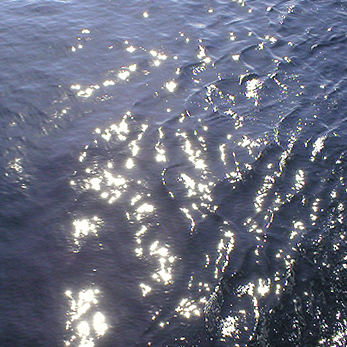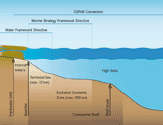OSPAR’s role within the wider community
The OSPAR Convention is firmly rooted in global obligations and commitments on the protection and management of the sea. The United Nations Convention on the Law of the Sea which came into force in 1994 sets the global jurisdictional framework Figure 1.2. The 1992 Rio de Janeiro United Nations Conference on Environment and Development and the 1992 Convention on Biological Diversity are the first major international agreements putting the ecosystem approach at the heart of environmental policy.
At a regional level, OSPAR cooperates with many other international organisations and has formal agreements with the North East Atlantic Fisheries Commission (NEAFC), the International Maritime Organization (IMO), the UN Economic Commission for Europe (UNECE) and ICES. Following the EU Water Framework Directive, the EU Marine Strategy Framework Directive is now an important driver for OSPAR’s future work Figure 1.2. It is also a common platform for continued cooperation between OSPAR and other organisations concerned with protection of the European seas. For example, in 2003 OSPAR and the Helsinki Commission (HELCOM – responsible for protecting the marine environment of the Baltic Sea) agreed to work together on a range of activities including marine nature conservation, impacts of fisheries and shipping, and the implementation of the ecosystem approach.
Continue to "QSR 2010 supports the EU Marine Strategy Framework Directive"


